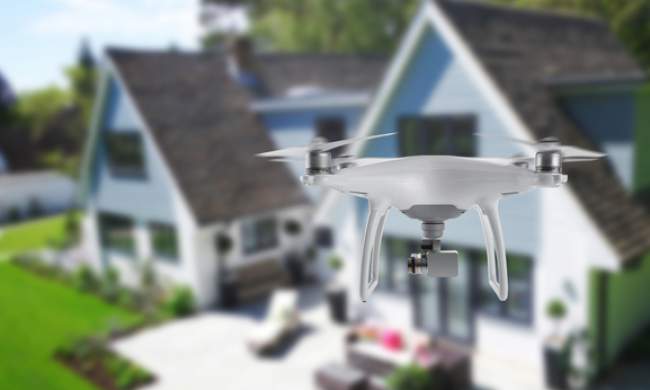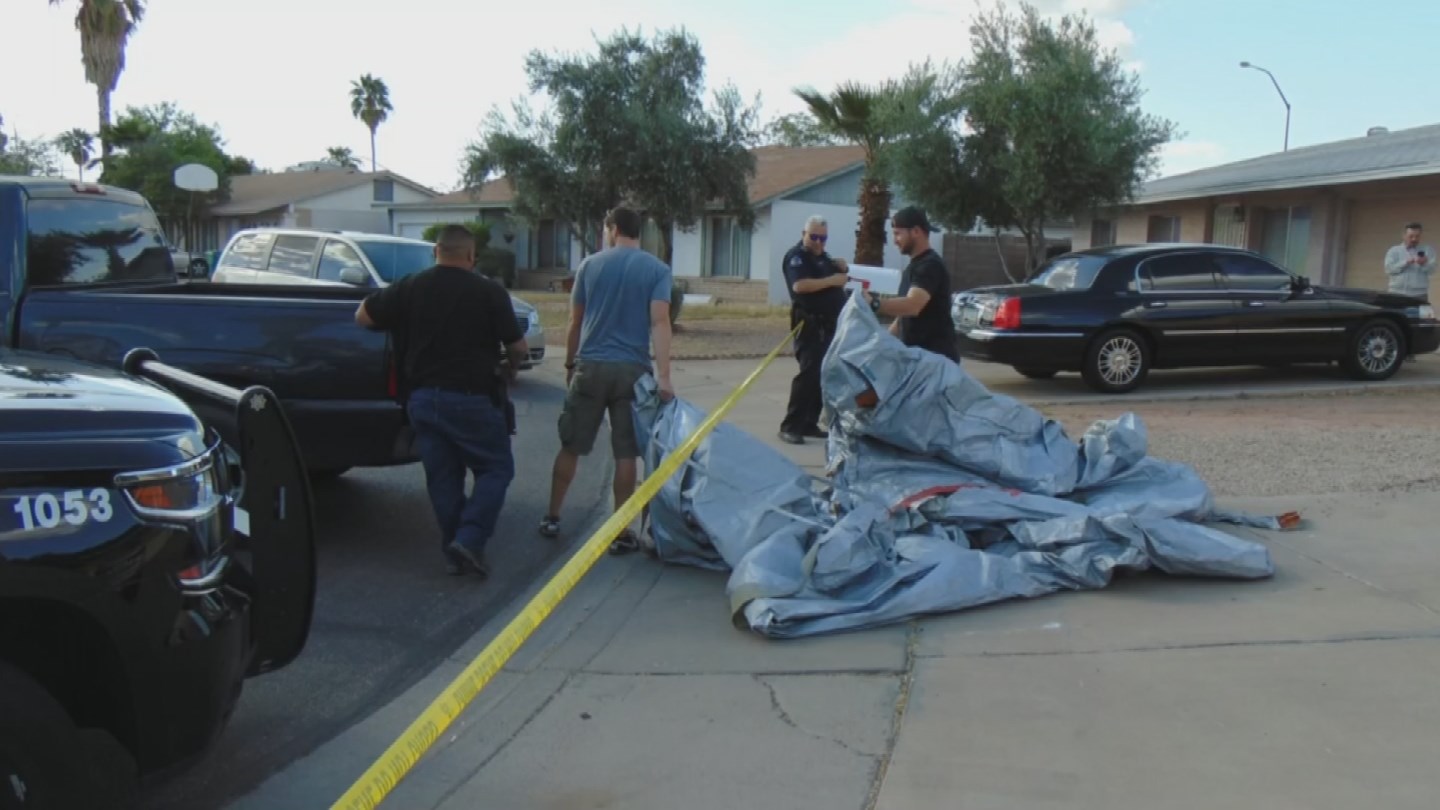

Property
In Malaysia, can I stop airplanes from flying over my property?
almost 8 years ago JS LimThis article only applies to the law of Peninsular Malaysia. Sabah and Sarawak have their own Land Codes and as such, the law might be different.
There’s an old rule in law that “he who owns land owns it to the heavens and to the centre of the earth”. So we could theoretically build a skyscraper on our property with 50+ underground floors if we wanted to? While it’s an exciting idea to think about, how true is it for us today? If there was oil underneath our houses, could we actually drill for it and profit?
The short answer is, no you can’t. The permissions to build extra floors are something else entirely, but there are some rights you have to guard your land ownership. So how much of the ground and sky do we actually control?
Your land comes with certain rights over the space above and below it
So is the sky above your house yours? Only to an extent, but the sky is not the only right you’re getting. Section 44(1)(a) of the National Land Code provides some benefits that come with your land, which are that you’re entitled to enjoy the airspace above and the ground below your land. You can imagine it as an invisible wall around your property that goes up into the sky and into the ground.
Section 44(1)(a) - National Land Code (emphasis added)
“the exclusive use and enjoyment of so much of the column of airspace above the surface of the land, and so much of the land below that surface, as is reasonably necessary to the lawful use and enjoyment of the land”
No one else is allowed to enter the space you’re entitled to without your permission, whether at ground level, in airspace, or underground. It’s called trespass in law if they do (and trespassers have to compensate you for it).
So how much of those spaces can I stop others from entering?

How lawyers say “get off my lawn”. Image from bookriot.com
It’s clearly stated in Section 44(1)(a) that we have control over what we “reasonably need”. But that begs the question: how much of the space or ground do we reasonably need? This depends on the type of land you own, but there is no fixed distance. The height of the airspace you control would differ if you own a 2-storey house versus say, if you own a lighthouse.
Similarly for the ground, your degree of control would be different if you just planted trees on your land versus if you had an underground parking lot. We’ll first address the airspace, and then the underground later.
Your lower airspace (from the ground up to the area above your roof) is strictly protected against trespass by law, while the use of the higher reaches of sky need to actually affect your enjoyment of your land to be considered trespass (like in the case of aircraft). As an example, if you’re doing any renovations, you should take care that your building does not protrude into your neighbour’s land. The Malaysian case of Chen Yue Kiew v Angkasamas Sdn. Bhd [2003] tells us that you can and will be forced to redo your roof if it pokes into your neighbour’s land.
Here are some more real cases below to illustrate:
1) An exhaust fan about 4.5m above ground level which protruded 75cm into a garden was considered trespass into the garden. (Laiquat v Majid [2005])
2) A crane jib hanging over someone’s land was considered trespass (Woolerton and Wilson Ltd v Richard Costain Ltd [1970])
3) An advertising sign jutting 8 inches over a neighbouring shop was considered trespass and the sign was removed (Kelsen v Imperial Tobacco Co. Ltd [1957])
In contrast, flying over a house and taking pictures of it is NOT considered trespass (Bernstein of Leigh (Baron) v Skyviews & General Ltd [1978])

Say cheese! Image from droneguru.net
But why is flying over a house acceptable? That’s because...
We don’t own the entire sky above our homes
On that last example, we are not entitled to control a space we don’t even use in the first place - the public will be allowed to use that space. This is especially with airplanes flying overhead all the time; imagine an airline company having to pay thousands of people every time one of their planes passes above houses. The company would go bankrupt in no time!
This is also recognized in our Civil Aviation Act 1969 under Section 19(1). It states that no legal action can be taken against an aircraft owner for flying over your land at a reasonable height. This means that while flying overhead normally is totally fine, there will be a problem if an airplane flew so low you could see the engines, or if a helicopter flew right next to your home.
The same Section also says that if any damage is caused by the plane or objects falling from the plane, the owner of the plane will be liable to you whether the damage was caused by carelessness or not. You might be wondering what could drop from airplanes in the first place, since it’s not as if someone can throw rubbish out a window. Well, that list includes ice that forms on the plane’s body as well as stowaways who hide in the undercarriage of planes (with the landing gear).

This emergency slide fell from a plane! Image from azfamily
Now that we know we don’t totally own the far reaches of sky above us, what about the ground below our property?
We don’t own our land all the way to the centre of the earth
For some pieces of land, the title deed with contain the land depth that the owner owns. In the others where the depth is not specified, the rule is that you are entitled what you reasonably need to enjoy your land. The ground beneath your land can still be sold by you to someone else, say, to build a storage cellar.
The rule is slightly different for properties sold by the government to developers after 2008. There are rules in JKPTG (Jabatan Ketua Pengarah Tanah dan Galian) Circulation No 1/2008 that define the minimum depth landowners are entitled to. The minimum depth you’ll get depends on the type of land you own. Agricultural lands get 6 metres, building lands get 10 metres, and industrial lands get 15 metres to use. This is to let landowners have enough space to use their land, but also allow for the underground land beneath that to be sold to a transportation company to build a subway for example.
Image from academia.edu
An amendment to the National Land Code in 2016 allowed for the land underneath a landed property to be sold separately. This becomes important when say, KTM wants to build a new line, but they may need to use the space deep beneath your house! For example, there were issues the Klang Valley Mass Rapid Transit Project (KVMRT) faced in buying land for underground tunnels, which caused a legal dispute between them and the owners of the Ampang Park shopping complex. KVMRT needed to buy the land and demolish the building to build an underground walkway because the underground land could not be sold as a separate piece according to this report.
As a side note, if you have any rock minerals or oil under your land, no, you don’t own them. There is no gold rush potential. Even if you have precious resources on your land, they belong to your State where you live according to Section 40 of the National Land Code.
So no, you don’t control all the skies and earth of your property
The land you bought comes with enough rights that let you use the land for what you need it for; whether it’s farming, an office block, or a factory. Another way to look at it is that your property has its own “personal space” that other people cannot violate. Just like how it’s inappropriate for a stranger to suddenly sit right next to you and lean on your shoulder, it’s inappropriate for someone to come use your garden hose without your permission.
On the other hand, you can compare flying a plane above your property to someone else being on the same bus as you. And trying to say that the land 1km below the surface is yours is like saying that a particular seat on the bus belongs to you. Basically, we have rights over what we privately own, but that stops where the space is for public use.
Jie Sheng knows a little bit about a lot, and a lot about a little bit. He swings between making bad puns and looking overly serious at screens. People call him "ginseng" because he's healthy and bitter, not because they can't say his name properly.